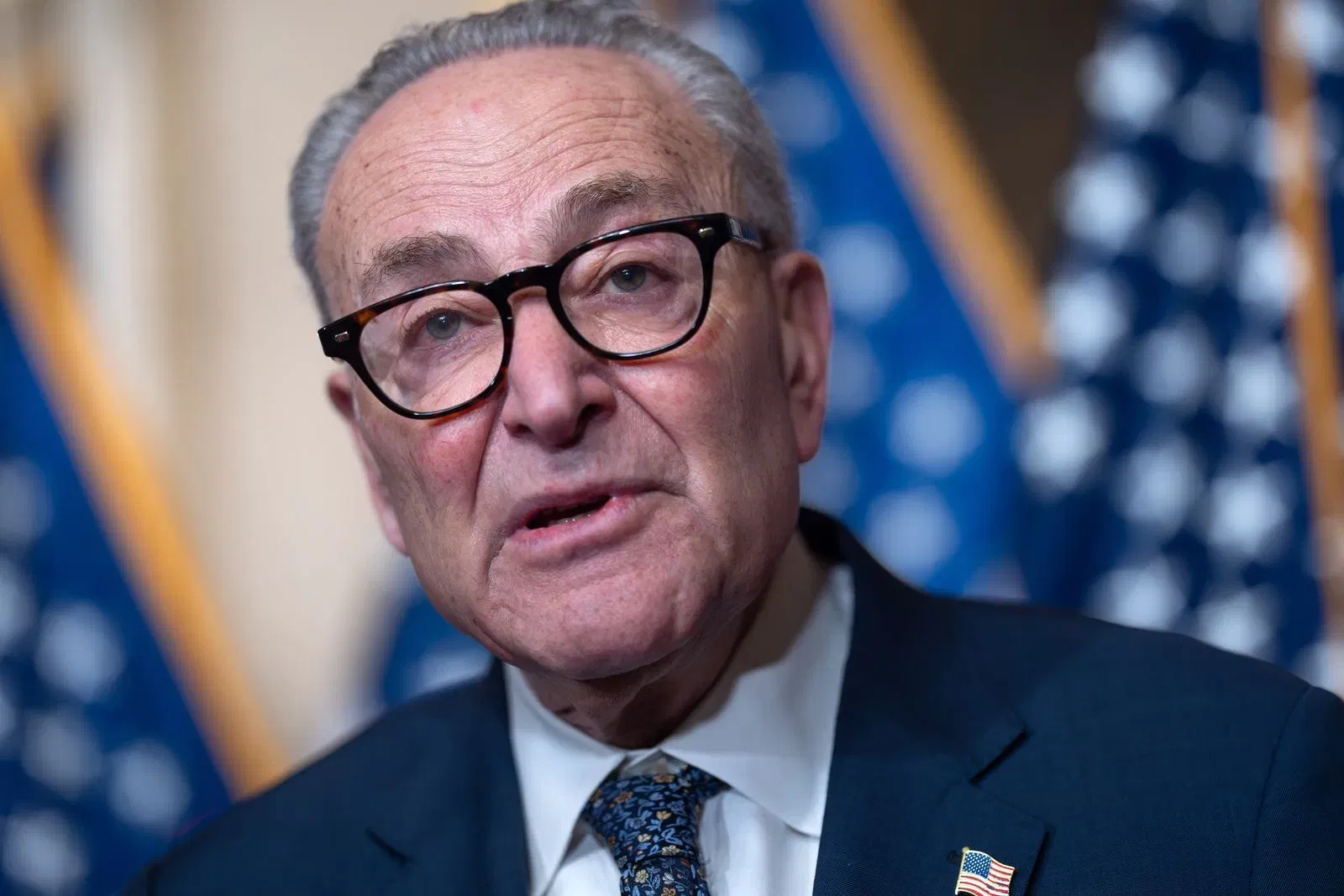WASHINGTON (TNND) — The end to the six-week government shutdown has divided Democrats and reignited frustration among the party’s base about its leadership in a lingering fight from the 2024 election losses that is still unresolved as the parties gear up for next year’s midterms.
Democrats were forced to back down from the shutdown without the major policy concession they were seeking from Republicans in the standoff in extending Affordable Care Act subsidies that are set to expire and result in higher premiums for Americans with marketplace insurance. The eight senators who broke ranks with the rest of the party, all of which are retiring or not up for reelection this cycle, have restarted infighting about what direction Democrats need to move to win majorities next year and beyond.
Most Democratic House members and each of the senators who voted against the compromise have railed against it as another example of the party’s failure to meet the moment.
It has also renewed scrutiny of Senate Minority Leader Chuck Schumer, D-N.Y., for failing to keep his caucus in line and claims he is an ineffective leader despite voting against the deal to end the shutdown.
“Senator Schumer is no longer effective and should be replaced,” Democratic California Rep. Ro Khanna said in a post on X following the vote. “If you can’t lead the fight to stop healthcare premiums from skyrocketing for Americans, what will you fight for?”
Schumer was hammered by the party’s base in March after negotiating and supporting a deal with Republicans to keep the government open, setting up a delicate dynamic for him to navigate in the most recent stalemate. Despite some calls for him to step down, he appears to be safe in his position at least until the next Congress.
“The real dilemma for Democrats on the Senate side is who’s next?” said David McLennan, a political science professor and director of the Meredith poll. “It’s sort of like a team doing poorly and they don’t fire the football coach because they don’t have enough money and they don’t have a plan B. It’s very similar in that Democrats may have to ride Schumer through the midterms, and then it makes sense with the new Congress coming in 2027 to change leadership.”
No senators have called for Schumer to step down from his role as the top Senate Democrat, but a chorus of House members, progressive candidates and party activists have not been shy about calling for a new leader. Primary candidates have also been vocal about bringing “new leadership” to Washington in their campaigns in another dig against the party’s establishment figures.
Rep. Seth Moulton, who is challenging Massachusetts Sen. Ed Markey in a primary, made Schumer’s position a part of his race in response to the shutdown deal.
“Tonight is another example of why we need new leadership,” Moulton said in a post on X. “If (Schumer) were an effective leader, he would have united his caucus to vote ‘No’ tonight and hold the line on healthcare. Maybe now (Markey) will finally join me in pledging not to vote for Schumer?”
His predicament highlights the difficulties Democratic leaders are facing trying to navigate the internal politics of the party and broader environment under a second Trump term. Democratic voters have given their party poor reviews of how it has handled the first 10 months of Trump’s return to office for perceived failures to stand up to the administration.
But the party is left with little power in the congressional minority in both chambers, leaving government funding bills as one of few areas they can try to influence policy with the GOP majorities and White House. Democrats of all stripes have ripped the compromise leading to the end of the longest shutdown in history as a capitulation to the president, renewing the internal consternation within the party.
The most severe criticisms of Democratic leadership have come from the party’s progressive candidates and activists who see the party as unable to adapt to the current political environment.
Sen. Bernie Sanders, a progressive independent who caucuses with Democrats, has railed against the shutdown agreement and continued to try to reshape the structure of the party through rallies for other liberal candidates. He has endorsed three progressives in competitive Democratic Senate primaries so far this year as part of his push to mold the party’s ideology.
“You’ve got a lot of different dynamics going on in this It’s a fight over the future of the Democratic caucus in Congress,” McLennan said. “The Democratic Party has got a lot of different beliefs and a lot of different constituencies, but the progressives are very loud right now.”


















